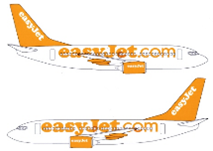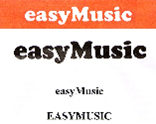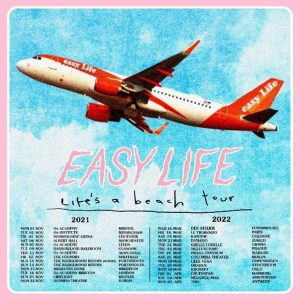Supreme Court judgement: Dairy UK Ltd (Respondent) v Oatly AB (Appellant)
In this case, Andrew Marsden of Wilson Gunn represented Dairy UK in the appeal by Oatly against the UKIPO…
easyGroup issued trade mark infringement proceedings against the British pop group’s use of Easy Life.
EasyGroup claim that the indie pop group EasyLife, formed in Leicester in 2017, have infringed on their trade marks.
EasyGroup is the owner of an extensive portfolio of ‘EASY’ trade marks and is relying on earlier UK trade mark registrations including EASYLIFE, EASYMUSIC, EASYJET and logo marks, which show the famous EASYJET aircraft in the distinctive orange colour (also registered as a trade mark) associated with the EasyGroup brand for airline travel and transport services.
The earlier UK Registration UK00003532904 EASYLIFE (Series of 2) in class 35 was filed on 14 September 2020 and registered on 19 August 2022. The registration covers a broad range of retail services connected with the sale of items such as musical instruments, CDs, DVDs and much more. The registration is less than five years old so EasyGroup will not need to validate the registration through use, meaning that even where there is no use for services included in the registration, the registration is treated as valid in its entirety.
The following UK Registrations are also relied upon by easyGroup:


EasyGroup commenced infringement proceedings against the band EasyLife on 6 September 2023, the basis of the case being:
Consequently, easyGroup’s position was that the use of EasyLife by the pop band was taking unfair advantage of the reputation of the earlier trade mark registrations and effectively free-riding on the coattails of easyGroup’s reputation.
The crux of this argument is that the image of the marks with a reputation or the characteristics which they project are transferred to the EASYLIFE mark used by the pop band, the result being that the marketing of the music group’s goods/services are made easier by their association with the earlier easyGroup registrations that have a reputation.

In response to easyGroup’s legal proceedings, EasyLife released a statement on their website on 11th October announcing that they were changing their name and entering into a period of legal mediation with easyGroup due to the inability to fund litigation proceedings. Further details can be found here: EasyLife – announcement
Whilst it is apparent that the use of the EASYJET plane is no more than a parodic adaptation to tie in with the promotion of the pop band’s tour (with the inclusion of the EASYLIFE sign on the wings of the plane) there is no such defence in trade mark law for parody (like there is in copyright law) that enables third-parties to successfully imitate earlier registered trade marks for the purpose of parody or satire.
Undoubtedly, the word EASY is relatively non-distinctive and therefore arguably incapable as functioning as a trade mark on its own. However, through geographically widespread, extensive and longstanding use of EASY marks by easyGroup, in conjunction with additional word and/or device elements to form a logo, easyGroup has a family of EASY trade marks that have acquired distinctiveness and therefore meet the requirements for the threshold of registrability. Even then, a counterclaim for invalidation of easyGroup’s EASYLIFE registration on the basis of non-distinctiveness would be a rational assertion and dependent on the state of the evidence of use that easyGroup have for their EASYLIFE mark.
In view of this, it is more likely than not that EasyLife’s use of the EASYLIFE trade mark and the plane livery with the distinctive orange colour would have amounted to trade mark infringement in the eyes of the court. However, the irony of this all is that the backlash of publicity against easyGroup means that it may just be the commercial reputation of easyGroup that suffers the most detriment in all of this (for the time being at least). The case also shows that proprietors of extensive trade mark portfolios are prepared to aggressively defend their trade mark rights to maintain the image of their marks and the benefits associated with the reputation established in a trade mark over time lies with them and them only.
If you have any questions about your UK or EU trade mark registrations, please get in touch to speak to one of our attorneys.